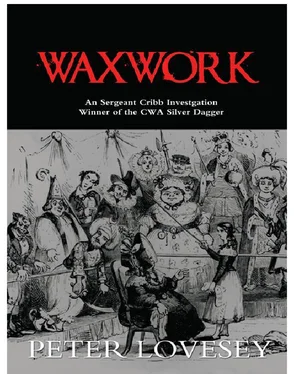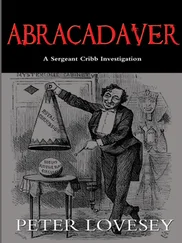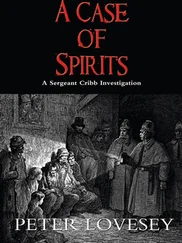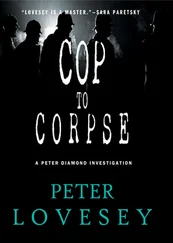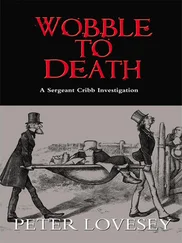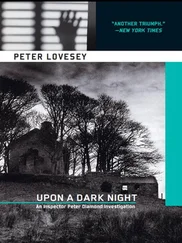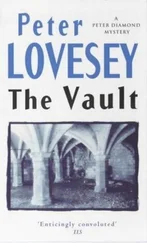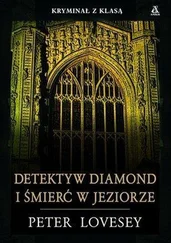Peter Lovesey - Waxwork
Здесь есть возможность читать онлайн «Peter Lovesey - Waxwork» весь текст электронной книги совершенно бесплатно (целиком полную версию без сокращений). В некоторых случаях можно слушать аудио, скачать через торрент в формате fb2 и присутствует краткое содержание. Жанр: Исторический детектив, на английском языке. Описание произведения, (предисловие) а так же отзывы посетителей доступны на портале библиотеки ЛибКат.
- Название:Waxwork
- Автор:
- Жанр:
- Год:неизвестен
- ISBN:нет данных
- Рейтинг книги:3 / 5. Голосов: 1
-
Избранное:Добавить в избранное
- Отзывы:
-
Ваша оценка:
- 60
- 1
- 2
- 3
- 4
- 5
Waxwork: краткое содержание, описание и аннотация
Предлагаем к чтению аннотацию, описание, краткое содержание или предисловие (зависит от того, что написал сам автор книги «Waxwork»). Если вы не нашли необходимую информацию о книге — напишите в комментариях, мы постараемся отыскать её.
Waxwork — читать онлайн бесплатно полную книгу (весь текст) целиком
Ниже представлен текст книги, разбитый по страницам. Система сохранения места последней прочитанной страницы, позволяет с удобством читать онлайн бесплатно книгу «Waxwork», без необходимости каждый раз заново искать на чём Вы остановились. Поставьте закладку, и сможете в любой момент перейти на страницу, на которой закончили чтение.
Интервал:
Закладка:
Peter Lovesey
Waxwork
SUNDAY, 15th APRIL
There was nothing shifty about James Berry’s eyes. No sideward glance or drooping lids. They were wide and steady. The Telegraph had called them codfish eyes once. After that he had changed to the Graphic .
The eyes were scanning it now, line by line, column by column. The reports on criminal matters, headed Police Intelligence , interested him most. Over the mantelpiece in the front room of his house in Bilton Place, Bradford, were two gilt frames, each filled with eight small photographs of men and women, mounted on best Bristol board. Each was a convicted murderer.
They were a select bunch. They all came in the carte-de-visite size, which showed they were not riffraff. Two were doctors.
This Sunday evening in 1888 his wife was talking about them. ‘I believe I could stand that lot hanging over my front room mantelpiece if there was summat else up there beside them.’
He looked over his paper. ‘What did you have in mind?’
‘A picture of you, love.’
It had never occurred to him to put himself up there.
Now that he considered it, he would not look bad in sepia. At thirty-six, he still had most of his hair. His face was manly, right enough, broad and powerful, with a good growth of black beard. There was a deep scar down the right cheek, but the beard covered most of it. He had a notion that his wife liked the scar. She had never inquired how he came by it, but there were times when she traced it with her fingertips. Ever so lightly.
He told her she was talking rubbish and went back to the Graphic. There was a case of poisoning in Kew.
She said the rogues’ gallery made her flesh creep. She wanted to look up from her sewing once in a while and see an honest, God-fearing face.
He knew why she mentioned the Almighty. They both took a pride in the lay-preaching. Folk sat up in chapel when James Berry went to the pulpit. He could speak with authority on the wages of sin.
‘There’s that elegant studio in Bridge Street,’ she went on. ‘You know-with velvet at the window? I’ve seen what he can do. Beautiful likenesses. You can wear your chapel suit and butterfly collar. You’ll make a grand picture, Jim!’
He told her straight that he did not hold with photography. She said it was no sin as far as she was aware. There was nothing about it in the Good Book that she could recollect.
He did not hold with sarcasm either. If it had not been the Sabbath he would have cuffed her for that. He told her so. She went out to make the cocoa.
The Graphic had a lot to say about the Kew murder. It seemed they had arrested a young married woman. Her people were well-to-do. They would see she was well represented at the trial. Someone of the calibre of Clarke or Russell was expected to lead the defence. A classic trial was in prospect.
When she appeared with his mug and a biscuit he told her why he had no intention of going to the studio in Bridge Street. ‘In my sort of work you don’t go out of your way to be recognised. You get enough of that, without photographs. If I had my picture took in Bradford, inside the hour it would be in t’ shop window with James Berry, Public Hangman in large letters under it.’
She was unimpressed. ‘We’ve no cause to be ashamed, Jim. If folk round here want to see your likeness, why not let them?’
He told her Bradford folk did not matter. They knew him mostly, any road. The trouble would start when some newspaper reporter came by. He would be into that shop like a ferret. Next thing, the picture would be plastered over every paper in the kingdom. It might easily cost them the job.
That silenced her.
No more was said on the matter that evening. Yet Berry did not dismiss it from his mind.
WEDNESDAY, 6th JUNE
The trial of Miriam Cromer took place at the height of the London season of 1888. It was fixed for the week before Ascot, at the Central Criminal Court.
The preliminary hearings at the inquest and police court had set out the facts like visiting cards. The deceased, Josiah Perceval, had been employed as assistant to Mr Howard Cromer, the owner of a photographic studio in Kew. It was a fashionable place, patronised by society. The name of Cromer was familiar to readers of The Tatler. On the afternoon of Monday, 12th March, a Dr Matthew Eagle had visited the studio, not to have his photograph taken, but to confirm that Josiah Perceval was a dead man.
The cause of death was poisoning. The post mortem on 14th March confirmed the presence of potassium cyanide, one of the fastest-acting poisons known to science. The dregs of a glass of madeira beside Perceval’s corpse had been analysed and found to contain the poison. A bottle of Scheele’s solution of potassium cyanide was kept in the processing room at the studio for use as a fixing agent. It was found in the poison cabinet half empty.
The first theory of the police was suicide. Perceval had been found alone. No one else had been in the studio rooms for two hours. He was understood to have had financial worries. He owed his bookmaker sixty-seven pounds.
The suicide theory was discarded when a decanter of madeira found in a chiffonier in the studio was analysed and found to contain cyanide. A man proposing to poison himself would put the poison in the glass he drank from, not the decanter. The person in the house responsible for keeping the decanters topped up was the proprietor’s wife, Mrs Miriam Cromer. She had attended to it at noon on the day of Perceval’s death. Before two o’clock she had gone out to her dressmaker’s for a fitting. Her husband was in Brighton for a meeting of the Portrait Photographers’ League, so Perceval was alone in the studio. It was an open secret that he helped himself to madeira when he had the opportunity.
At twenty minutes past three the housekeeper and a maidservant who were in the basement underneath the studio heard a heavy thump as if someone had fallen. It was followed by other sounds, a series of knocks as if someone were beating upon the floor. There was an order that no servant was to be seen in the studio in business hours, but the sounds were so unusual and alarming that they took it upon themselves to investigate. They found Perceval lying rigid on the carpet, fighting for breath, his eyes glassy and staring, his skin turning blue. He was conscious but incapable of speech.
The maid ran to fetch Dr Eagle, but in the ten minutes it took for him to be summoned, Perceval died.
Mrs Miriam Cromer returned to the house shortly before four o’clock. She came directly to the studio. Asked whether she knew if there was any form of poison in the house, she took Dr Eagle to the cabinet and showed him where the cyanide was kept. A few minutes later she fainted.
During the next week painstaking work by the police discovered a remarkable collation between the financial affairs of Josiah Perceval and certain transactions made by Miriam Cromer. In October and December, 1887, and January and February, 1888, Perceval had settled debts with his bookmaker of?10,?12,?14 and?15 respectively. At dates that closely corresponded, Mrs Cromer had visited a Brentford pawnbroker and obtained precisely similar sums. On the advice of her solicitor, Mr Simon Allingham, she declined to appear as a witness at the inquest on 28th March. The coroner’s jury returned a verdict of wilful murder against her. That same afternoon she was formally charged and taken into custody.
At the magisterial hearing on 9th and 10th April, Allingham appeared for Miriam Cromer. When the charge was put he instructed her not to speak, and then reserved her defence. She was committed for trial at the Old Bailey.
Читать дальшеИнтервал:
Закладка:
Похожие книги на «Waxwork»
Представляем Вашему вниманию похожие книги на «Waxwork» списком для выбора. Мы отобрали схожую по названию и смыслу литературу в надежде предоставить читателям больше вариантов отыскать новые, интересные, ещё непрочитанные произведения.
Обсуждение, отзывы о книге «Waxwork» и просто собственные мнения читателей. Оставьте ваши комментарии, напишите, что Вы думаете о произведении, его смысле или главных героях. Укажите что конкретно понравилось, а что нет, и почему Вы так считаете.
